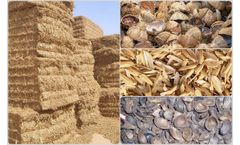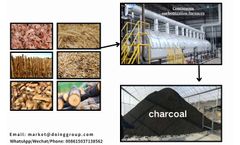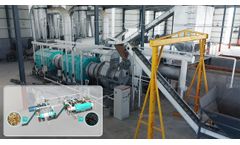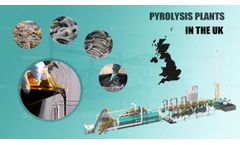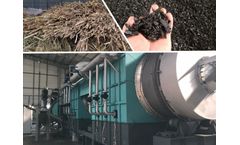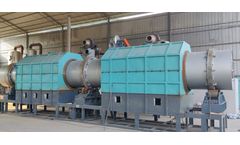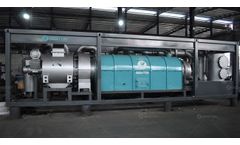Biochar Carbon Articles & Analysis
31 articles found
The best feedstock for biochar production depends on its availability, carbon content, and ease of processing. High-quality biochar raw materials generally share several common characteristics: high carbon content, suitable density, and a reasonable ash content. ...
The demand for high-quality biochar is surging, thanks to its key role in sustainable agriculture (soil improvement, carbon sequestration), renewable energy and advanced filtration technology. ...
Economist Impact is part of The Economist Group, a global media company specializing in international business and world affairs information American BioCarbon was chosen to participate in the panel discussion due to its distinctive carbon sequestration products, particularly bagasse biochar. This renewable and carbon-neutral product, derived ...
The biomass decomposes, releasing volatile gases like methane, hydrogen, and carbon monoxide, as well as a solid residue known as biochar. The Carbon - Sequestration Mechanism Long - Term Carbon Storage: Biochar is highly stable. ...
Biochar contributes to carbon sequestration by locking atmospheric carbon dioxide absorbed by plants during photosynthesis into a stable form. ...
The key byproducts of biomass pyrolysis include: Biochar: A carbon-rich solid material that can be used as a soil amendment or in industrial applications. ...
What is Rice Husk Carbonization? Rice husk carbonization refers to the process of converting rice husk, a byproduct of rice milling, into biochar through pyrolysis. ...
Biochar is a carbon-rich material produced through the pyrolysis of organic matter, such as agricultural waste, forestry residues, and municipal solid waste. ...
Understanding Biochar and Its Benefits 1. What is Biochar? Biochar is a carbon-rich product obtained by heating biomass in the absence of oxygen, a process known as pyrolysis. The resulting material has numerous applications, particularly in agriculture, where it is used to improve soil fertility, increase moisture retention, and ...
One such innovation is the rice husk carbonizer, a device designed to convert rice husks into valuable biochar through pyrolysis. ...
Within the confines of these facilities, waste materials undergo a controlled heating process, leading to the conversion of organic matter into valuable byproducts such as biochar, bio-oil, and syngas. Tackling Environmental Challenges Amidst growing concerns over waste accumulation and resource depletion, pyrolysis plants in the UK stand as beacons of sustainability. ...
Understanding the Biochar Making Machine The biochar making machine represents a sophisticated apparatus designed to convert organic biomass into biochar, a form of charcoal rich in carbon. ...
Solid Residue (Char): The remaining solid residue, known as char or biochar, consists of carbon and ash. This can have applications in agriculture or be used as a carbonaceous material. ...
Here, coconut shells undergo controlled heating, leading to the breakdown of complex organic structures. The result is biochar—an environmentally friendly substance with remarkable stability and absorbent capabilities.Agricultural Alchemy: Soil Enrichment with Biochar Carbon-Rich Soil Amendment One of the primary applications of coconut shell ...
The pyrolytic process operates in an oxygen-deprived environment, curbing the formation of carbon dioxide and other harmful byproducts associated with conventional waste incineration. ...
Soil Enrichment and Carbon Sequestration Biochar, when incorporated into the soil, becomes a reservoir for nutrients and enhances water retention. ...
This method ensures the efficient breakdown of complex organic compounds, leaving behind carbon-rich biochar. Biochar: Harnessing Carbon-Rich Residues Biochar, a byproduct of coconut waste pyrolysis, is characterized by its porous structure and high carbon content. Beyond waste reduction, ...
The Classics: Coconut Shells, Fruit Husks, and Bagasse Coconut shells, like the proverbial jack-of-all-trades, are prized for their versatility. They're carbonization gems, yielding high-quality biochar and activated carbon. Their dense structure and high carbon content make them a preferred choice. ...
Biochar, a porous, carbon-rich material derived from biomass, has the potential to revolutionize soil health and carbon sequestration. ...
Environmental Benefits Carbon Sequestration Biochar is a carbon-rich material that sequesters carbon in a stable form, preventing it from being released into the atmosphere. Mobile biochar production equipment promotes carbon sequestration in a decentralized manner. ...

